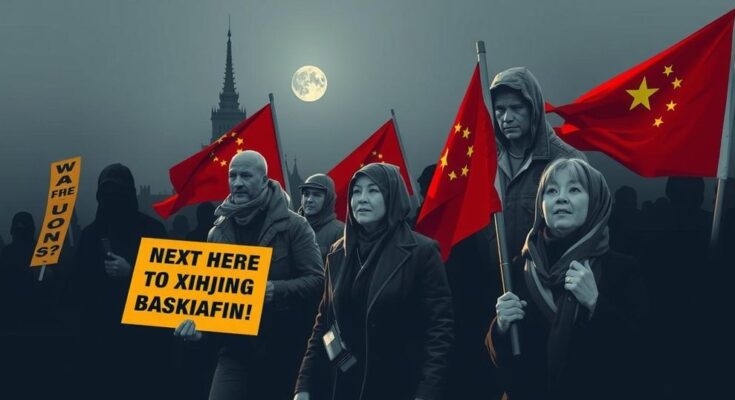Uyghur advocates are urging the U.S. administration to intensify actions against human rights violations in Xinjiang, where severe oppression persists. They demand stronger sanctions and enforcement of laws protecting Uyghur rights, emphasizing bipartisan support and national security implications. However, concerns about economic ties with China complicate the U.S. response to this ongoing crisis.
Uyghur advocates are amplifying their pleas to the incoming administration, urging a decisive pivot in U.S. policy towards ongoing human rights violations in Xinjiang. As the reality of oppression looms large, where Uyghurs and other minority groups endure systematic suppression, voices within the Uyghur American community are determined to ensure China’s actions are not brushed under the carpet. They demand an unwavering stance on the previously established designation of genocide against these populations. The Trump administration’s tenure was marked by a commitment to sanctioning officials responsible for the mass detentions and forced labor that have become hallmarks of this humanitarian crisis. Nury Turkel, a prominent figure at the Hudson Institute, underscored the bipartisan support for Uyghur rights, hinting at broader national security concerns intertwined with this issue. Advocates like Rushan Abbas of the Campaign for Uyghurs are calling for rigorous implementation of the Uyghur Forced Labor Prevention Act, alongside intensified sanctions on complicit Chinese entities. Adding to the chorus, Salih Hudayar, the prime minister of the East Turkistan Government in Exile, passionately argues for the international acknowledgment of Xinjiang as an occupied territory. However, the advocates are acutely aware of the looming shadow of economic interests with China, which could signal a hesitation within the U.S. to fully engage in human rights advocacy, potentially diluting the urgency of their calls.
The situation in Xinjiang remains dire for Uyghurs and countless other ethnic minorities who are facing severe oppression under Chinese policies. Reports of mass detentions, forced labor, and cultural erasure paint a picture of systemic abuse that has drawn international condemnation. The backdrop of international politics complicates the response, especially with substantial economic ties between the U.S. and China, which poses a challenge to the enforcement of human rights commitments.
The advocacy for stronger U.S. action against China’s human rights violations in Xinjiang is not just a call for justice but a vital appeal that intertwines moral responsibility with national security concerns. As Uyghur leaders rally for recognition and action, the balance between economic diplomacy and human rights advocacy will be crucial in shaping U.S. policy moving forward. The outcome of these efforts reflects not only on the future of the Uyghur community but also on the integrity of global human rights standards.
Original Source: shiawaves.com



